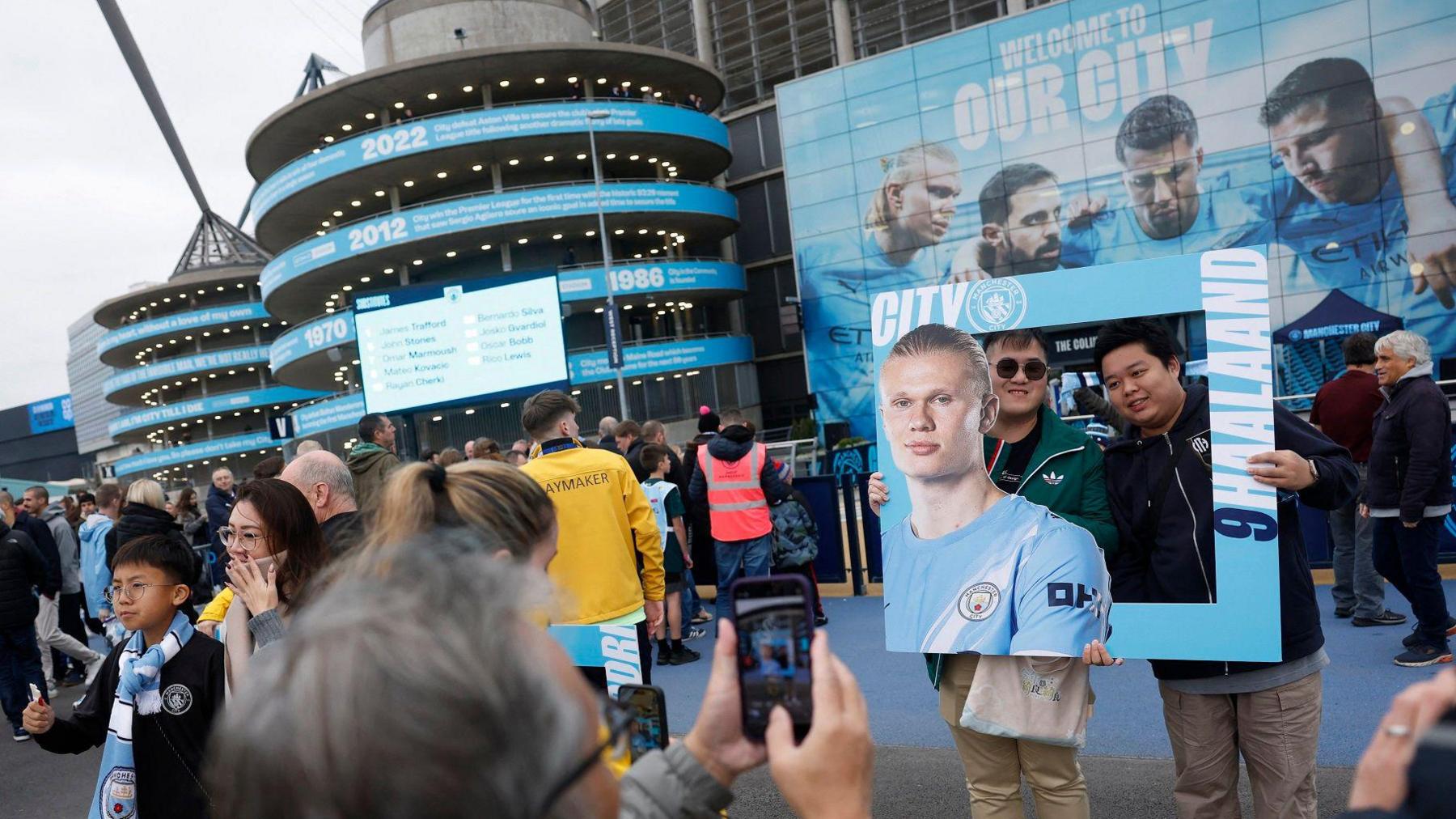'My black football history poem is for everybody'

Lemn Sissay first saw Manchester City play when he was aged 13
- Published
Performance poet Lemn Sissay has said he wants his new piece to mark Black History Month for Manchester City to be a work that "everybody loves".
Named The Stadium Speaks, it features in a short film with the club's footballers, including Kalvin Phillips and its first black player Stan Horne, reading lines.
Blues fan Sissay, whose works adorn murals across the city, told BBC Radio Manchester: "I wanted to write a poem that was universal, that everybody would love whatever colour skin they were, whatever gender, whatever class."
The poem references the club's history including its former Maine Road home in Moss Side, which has had a large black community since the 1950s.
Sissay, who first saw the club play when he was 13, says: "I want it to be the stadium saying this is part of our history, and black history is all our history and all our history is black history.
"It's beautiful to be able to write something which is about our city here, Manchester, and about us - about everybody for everybody."
Lemn Sissay first saw the club play when he was aged 13
The poem, which also features the club's backroom staff, has been shown on stadium screens during recent games, with lines displayed on the ticker tape around the pitch.
Bridget, who works at the ground on match days, said that being in the film had enabled her to highlight "all the excellent people that have added to British Black history".
"Obviously having this conversation all year round would be ideal but it's good that we get to all say yeah, we're amazing and we're black.
"I think oftentimes black people can be left out of the conversation. It doesn't really matter what sector or section of the working world that we're talking about."

A special film of The Stadium Speaks has been screened at the Etihad on recent matchdays
This summer, anti-discrimination charity Kick It Out said there had been a fall in the number of reports of racism across all levels of football that they received in the 2024-25 season, but they had risen in the professional game from 223 to 245.
More than 280 incidents of racially-motivated hate crime at football games in England and Wales were reported to police during the same period.
Get in touch
Tell us which stories we should cover in Greater Manchester
Listen to the best of BBC Radio Manchester on Sounds and follow BBC Manchester on Facebook, external, X, external, and Instagram, external. You can also send story ideas via Whatsapp to 0808 100 2230.